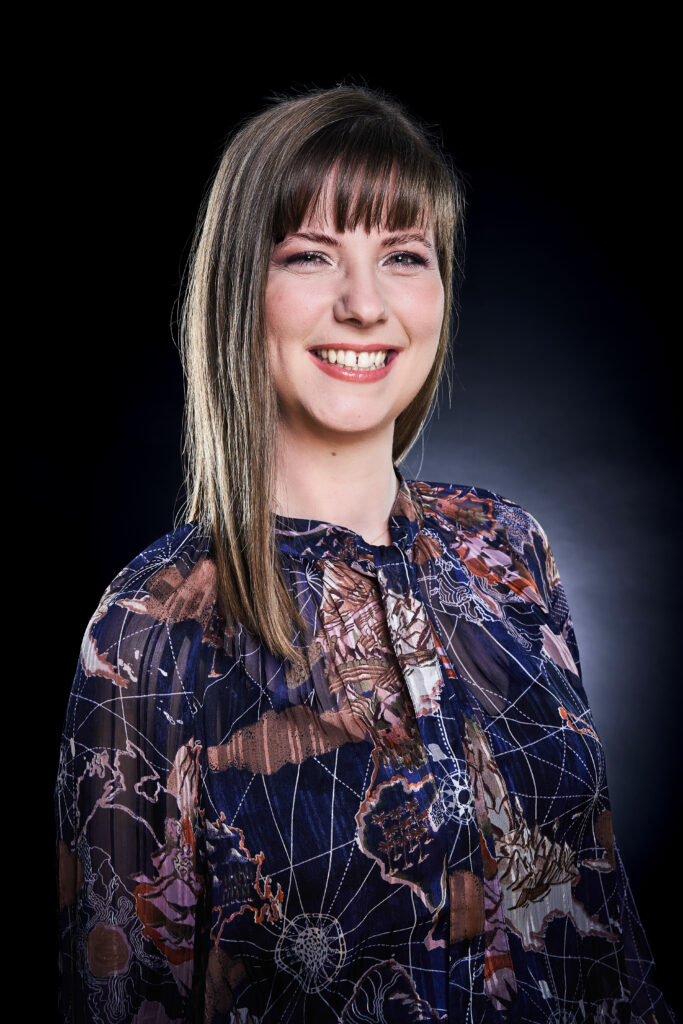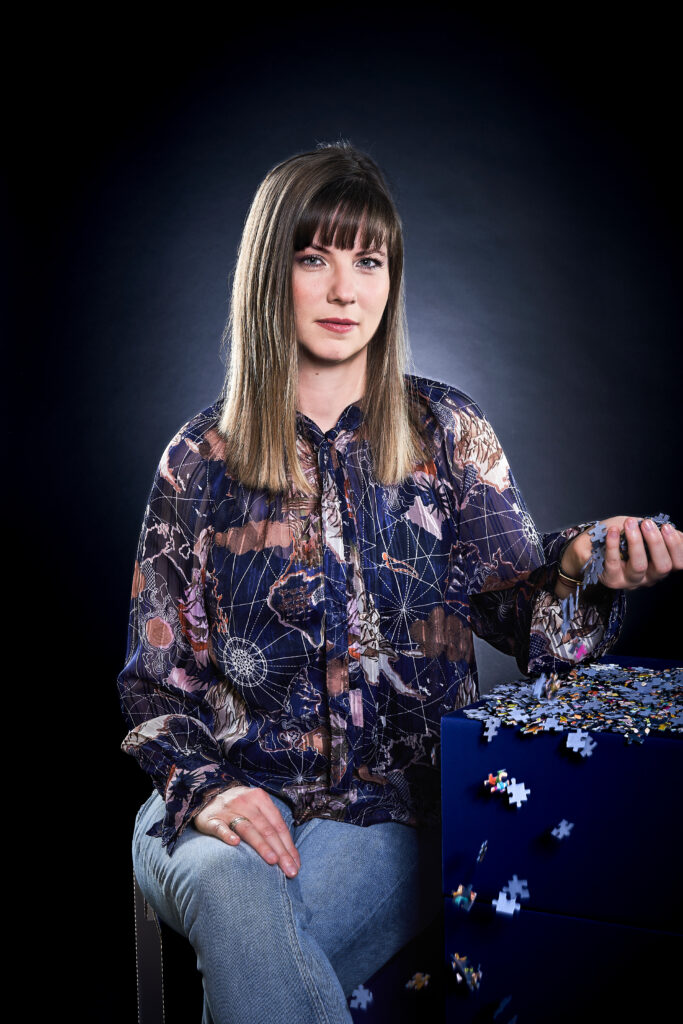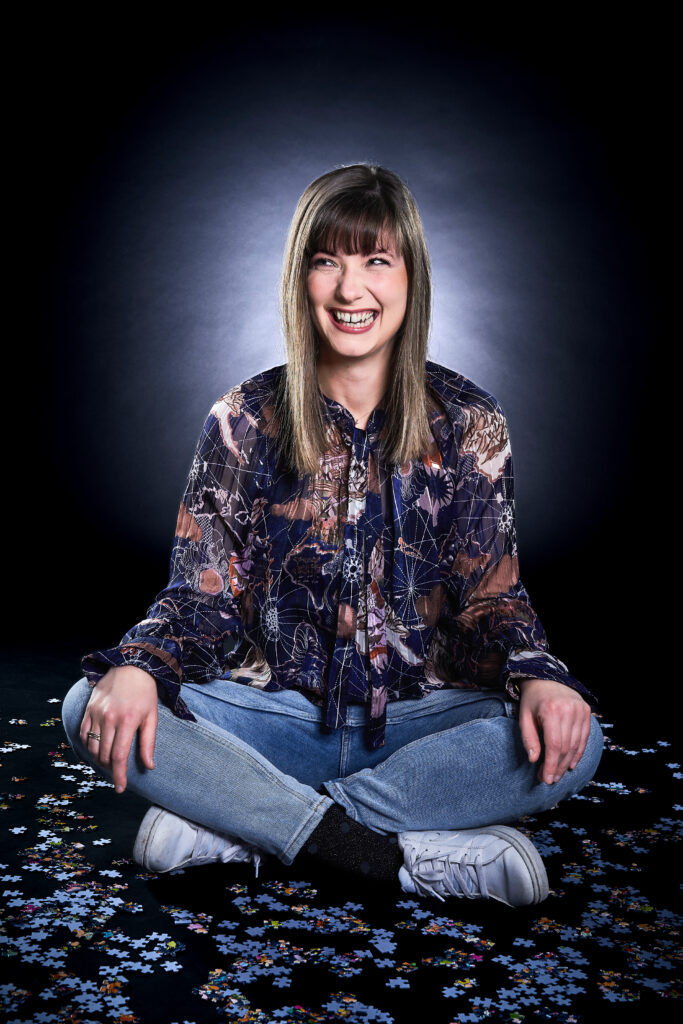Racing against the academic clock – a portrait of Laura Renner

The path was clearly laid out before her: a bachelor’s degree in economics and business administration followed by a master’s degree, a top doctoral position and then a professorship. With great ambition, Dr. Laura Renner works on her publications, goes to conferences and prepares her courses, but the hoped-for appointment as professor does not come. The calls for professorships demand published articles, preferably in the top journals the field has to offer. Oh, and certainly not too few of them, thank you very much. In principle, Laura Renner would like that, too. After all, who doesn’t like being the first author on a fascinating topic? The documents for her publications have been sent off in full, the deadlines have been met, but the process drags on and on.
She has been waiting two years for her work on migration research and gendered flight decisions to be published. That’s two years in which she can’t show much academic progress on paper, and the clock doesn’t stop ticking. One has six years before and six years after the PhD to move up the university ladder on fixed-term contracts. If you don’t get a permanent position within those 12 years, you have to rely on third-party funding, and then „things get ugly,“ Renner says. This is often not only difficult to organize, but also brings an additional pressure that weighs you down when working and applying to positions.
With the academic clock ticking and growing frustration with the inertia of decision-making in general, Laura Renner decided to pull the ripcord and retire from university operations. „It’s just not fun, the constant ‚Where?“ and „How?“ ,“ she says. She’s tired of settling for 3-year contracts, not knowing if she might have to move the following year for a possible professorship after all, or how to plan her family. Other postdocs she talks to share her dissatisfaction, and she also sees young researchers online publicizing their frustration under the hashtag #ichbinhanna. Some even leave Germany to pursue their dream of a lifetime professorship, but that wasn’t really worth it to Laura Renner. The decision to leave the university was not an easy one, and although she presents her experiences in a refreshingly positive and optimistic light, you can hear that a certain amount of frustration continues to resonate. Thoughts of a career in academia have not completely faded from Laura Renner’s mind, and she hopes that future generations of postdocs have an easier time achieving it.
Now she works in the private sector at JobRad Holding SE in the Strategy department and is pleased that she can constructively contribute her knowledge and skills to the goal of sustainable mobility on a daily basis. She does not regret the career change one bit: The new team communicates very well with each other, it is much faster to deliver results, and she does not have to spend two years sitting on her hands for a publication. Despite the positive new experiences and the satisfaction her choice has brought her, leaving the university environment was not an easy decision for Laura Renner. It is therefore very convenient for her that she does not have to give up all her university collaborations immedately. She has the opportunity to continue cultivating her old contacts and to finish the projects she had started in peace.
One project particularly close to Renner’s heart is the WomanStats Project, whose database is the largest cross-national compilation of data, statistics and maps on the status of women worldwide. The WomanStats Project includes more than 350 variables for a total of 176 countries, including factors such as domestic violence, political participation and literacy rates. What makes this project special for her is the interdisciplinary change of perspective she experienced while working on it. Currently, she has suspended her work on the project due to her pregnancy and career change, but she is still in contact with the research group and can imagine working with them again later.
So although Laura Renner is officially no longer employed at the university and no longer pursuing her goal of a professorship, she looks back positively on her time, the valuable experiences and exciting contacts she was able to take with her. She is neither begrudging nor bitter, and her mischievous grin runs through all her stories. She fully stands by her decisions and when she tells her story, there is pride in every bit of it. Having the guts to give up a desire that has been pursued for so long is not just an ending but a promising new beginning. One can really only envy Laura Renner for her courage.


Portrait by Leah Bohr
Leah Bohr completed her Bachelor’s degree in English Studies and Cognitive Science at the University of Freiburg and is now getting her Master’s degree in Cognitive Science in Tübingen. When she’s not working or programming, you can find her in the gym or outside on her pink bike. Despite her workaholic tendencies, she knows how to enjoy relaxing eveningd on the balcony with home-grown tomatoes. She owes her Spanish skills largely to anime subtitles.